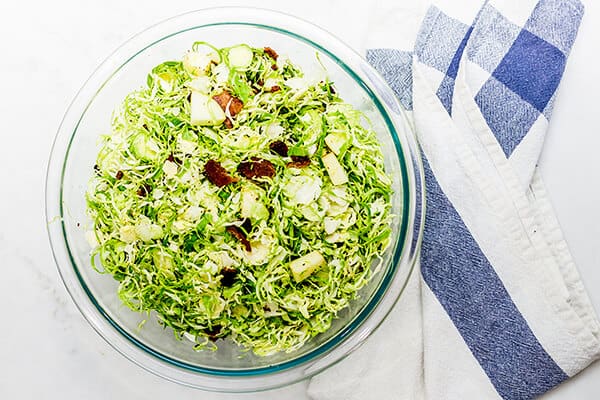Everything You Need to Know about The Whole 30

Have you been feeding your body junk food and experiencing the effect of unhealthy diets? Then what you need to get yourself back on track is the Whole 30 program. The Whole 30 program promises to help you regain your energy by ditching some types of food that are unhealthy for your body.
At one point or the other, we all need a little food reset, and one of the most effective plans that help us achieve this is the Whole Thirty plan. In this guide, we will walk you through everything you need to know about the Whole30 program.
Read More: Best Whole30 Approved Snacks
What Is Whole 30?

Whole 30 is a clean-eating platform designed to last for 30 days. The program is designed to help restore your eating habits by eliminating some types of foods from your diet. Well, the types of foods the program cuts off are pretty difficult to give up, such as grains, sugar, dairy, alcohol, and legumes. For you to commit to this program, you have to give up a lot.
Committing to the Whole30 program is not easy, but it is highly rewarding. Rather than taking some of your favorite diets, which are not very good for your health, you would be taking clean vegetables and proteins. Whole30 is not a diet but a quick-fix program designed to turn your life around for the better.
The program will help to eliminate cravings, enhance medical conditions, cure digestive problems, rebalance hormones, and boost immune function and energy. The founders of this program said that all kinds of mental and physical health problems, ranging from allergies to depression to acne, could be because of your diet.
However, it is difficult to pinpoint the foods to be blamed unless you stop the intake of grains, sugar, legumes, alcohol, and dairy for 30 days. After the 30 days, you will be free from your diet food feeling like a brand new person. You might no longer have an appetite for your old ways of eating anymore. If and when you start taking food groups, the reaction of your body will tell you the kind of foods you should limit or stop taking completely.
The Whole 3 program is very common because it promotes eating whole foods. The Whole 30 diet program can also help people with severe health conditions understand how their body reacts to certain foods. You will start noticing tangible changes in your body over the course of the 30 days. You will see improvement in your focus, mood, sleep, energy, pain, digestion, athletic performance, and more. You might also experience reduced health conditions such as migraines, eczema, allergies, asthma, and more.
Read more: Best Whole30 Approved Snacks
Is the Whole30 Die the Right Eating Plan for My Health Goals?

Whether or not Whole30 is the right eating plan for your health depends on your health goals. The Whole 30 diet is designed to help reduce or stop certain food in your life and is not solely a weight-loss diet. It is not a diet neither is it a detox. However, over 95% of people that embarked on this journey said that they lost some pounds, which is why many people also refer to it as the Whole30 weight loss program. When embarking on this journey, you should keep your expectations in check while examining your interest in the program.
You should also know that the program is meant to lasts for 30 days, which means you have to remain committed to it for that long. If you want to enjoy the full benefits of the program, then you must see it through the specified number of days. At the end of the thirty days, you will be impressed with the results you will see and know the right eating plan for your health.
Read more: Whole30 vs Keto
What Can I Eat During the Program

The Whole 30 program consists of eliminating certain types of food in your life. This means there is a list of food you will say “No” to and there is a list you would say “Yes” to. For you to enjoy the lasting benefits of this program, you need to follow the Whole30 guidelines. Here is a list of food you should eat and those you should avoid.
Food to Say “Yes” to
- Meat: When it comes to meat, you can eat burgers but say no to buns.
- Fish: Fish is an essential part of a healthy diet, and the body needs a lot of it. You can eat different types of fish, including canned stuff.
- Poultry: Poultry is also allowed in the Whole 30 diet. You can take as much sausage and chicken as you want.
- Vegetables: You should eat plenty of veggies. Your options are unlimited in this aspect. Most of your meals should consist of vegetables.
- Fats: You should get considerable fat from healthy fat sources. Taking avocados every day would also help.
- Fruits: Fruits should be your best buddies on this 30-day journey. You should eat many fruits every day. Take fruits such as apples, blueberries, raspberries, strawberries, bananas, mango, grapefruit, lemon, lime, figs, dates, plums, cherries, peaches, nectarines, watermelon, and more.
Read more: Everything You Need to Know about Whole 30
Food to Say “No” to
- No Artificial Sweeteners or Sugar: You have to stay away from sugar, artificial, and natural sweeteners. You should even stay away from maple syrup.
- Avoid Smoking: While on this 30-day journey, you need to avoid smoking. Not only cigarettes but weed also.
- Zero Alcohol: Alcohol is another vital thing you should avoid completely. Not even an atom of booze.
- No Grains: You should also stay away from grains such as corn, quinoa, oats, wheat, and more.
- No Dairy and Soy: Soy and diary should be off your list. This means you have to give up tofu, yogurt, milk, and cheese.
- No Additives: You should avoid food with processed additives such as sulfites, carrageenan, and MSG.
- Avoid Fake Treats: You should stay away from fake treats, and this includes Paleo pancakes and cauliflower crust pizza.
The goal of this program is to create a healthier relationship with your diet, which means you have to let many things go. You need to sacrifice a lot to enjoy the benefits of the Whole 30 program.
Read more: A Comprehensive List of Whole30-Approved Foods
Problematic Food Groups and Why You Should Stay Away from Them

The Whole 30 diet offers a wide range of health benefits. This program helps to eliminate certain food groups that are not beneficial to your overall health and wellbeing. Physicians usually prescribe elimination diets for people with digestive issues, food allergies, rashes, and more. This 30-day program helps to remove food groups that may cause issues out of the equation for 30 days.
There are many positive comments from people who have followed this program to the end. Most of them discovered that these food groups cause headaches, body aches, stomach upset, rashes, fatigue, and other uncomfortable symptoms when they start taking them again. However, the major health benefits of this program come from staying away from problematic and unhealthy foods. Here is a summary of why some food groups might be problematic to the body:
Read more: Vegan Whole30
Alcohol
The co-founders of the Whole30 program said that alcohol has no redeeming health benefits. It is not beneficial to the body in any way. Alcohol is addictive, neurotoxin, and it does not add any calories to the body. In addition to being useless to one’s health, it also affects decision-making.
Alcohol would make it difficult for a patient to stick to his or her diet. It also affects glucose metabolism, hormones, as well as gut health. The founders of this program said that the negative effects of alcohol cancel out any of its supposed health claims, and you could find those benefits in other food. For example, red wine is purportedly beneficial to the heart, but another study shows that you can get the same health benefits from red grapes.
Read more: Whole 30 Menu
Artificial Sweeteners and Added Sugar
Another fascinating health benefit of this program is that it helps you to stay away from artificial sweeteners and added sugar. Many would argue that artificial sweeteners and added sugar are good for the body, but there is more to that. Foods that contain so much added sugar do not contain any calories, and they are highly addictive.
Artificial sweeteners are not healthy for the body, and they are linked to certain health issues such as bowel disease, cancer, autoimmune disorder, migraines, and more. The consumption of sugar releases opioids naturally, and this makes sugar addictive. Another study also shows that added sugar contributes to obesity and metabolic syndrome.
Read more: Whole30 Chicken Recipes
Seed Oils
Vegetable and seed oils contain sufficient amounts of omega-6 fatty acids, which are highly beneficial to the body. Nevertheless, according to research, there has been a significant rise in the ratio of omega-6 fatty acids to omega-3 fatty acids (from 1:1 to 20:1). This massive increase in the ratio can result in brain-gut issues, systemic inflammation, and obesity.
The Whole30 diet encourages increased intake of omega-3 fatty acids and reduced omega-6 fatty acid consumption, and this can help to balance the ratio. It can also enhance your overall health while coming in handy in managing and preventing obesity.
Read more: Whole30 vs Elimination Diet
Grains
Many foods in the United States today contain grains. Grains come in different forms, and they are common in many diets. The elimination of grains in the Whole30 diet sparks debate between medical and nutrition professionals. Nevertheless, this elimination is temporary, with the aim of resetting the body. It would also help you to determine if some types of grains are good for your body.
Grains can cause issues for some people for a wide variety of reasons. People tend to overconsume them easily, and they promote inflammation. The proteins in grains are also sometimes very hard to digest. Grains also contain too many calories. Grains are often considered a heart-healthy source of nutrients and fiber, but the creators of this program said that grains, especially refined grains, are not a great source of nutrition as fruits and veggies.
This diet promotes the consumption of more fruits and veggies, which would provide your body with all the nutrients it needs. Fruits and veggies are rich in vitamins and nutrients, and your body would thank you when you feed it more of these
Read more: Whole30 Vegetarian | Whole30 Meals for Vegetarians
Dairy
Milk makes a great part of our diet, as it contains carbs, protein, fat, and other vital nutrients. However, not everyone’s body accepts dairy products. There is sugar lactose in milk, and many people do not have the enzyme to digest it, and this often results in bloating and gas. Some people also react to some of the proteins found in milk such as whey and casein.
There are also hormones in dairy and milk products that might affect the endocrine system, resulting in weight gain. Eliminating dairy from your diet for 30 days will enable your body system to flush out all the dairy in it, and you would be able to determine if your body reacts to it when you start reintroducing it.
Read more: Nursing and Whole30
Legumes
Many consider soy, peanuts, lentils, peas, and beans as healthy foods. Nevertheless, many people do not have what it takes to digest legumes properly. Furthermore, there are phytoestrogens in soy, and this has a hormonal response in the body. Processed foods tend to contain a high level of soy-based ingredients.
The creators of this 30-day diet program confirmed that there is no strong scientific case against legumes. However, they recommend removing it from your diet for a month and then decide if you want to add them to your diet again when reintroducing them.
Read more: Quick Whole30 Meals
Monosodium Glutamate (MSG)
MSG is a common artificial flavor found in processed foods. The FDA touted it as safe but scientists have been studying its effects because of reports of contrary reactions such as hives, rashes, headaches, nasal congestion, and more. Scientists also believe that it links to other health conditions such as obesity and low-grade inflammation.
MSG comes in foods with different names including hydrolyzed protein, modified food starch, maltodextrin, dried meat, poultry stock, meat extract, and more. Avoiding foods that contain MSG for 30 days will help you to find out if your body is sensitive to it. When you start reintroducing it after 30 days and your body reacts to it, then you should stay away from it completely.
Read more: Paleo and Whole30
Benefits of Completing the Whole30 Diet

People embark on the Whole Thirty diet journey for a wide range of reasons. Some people just do it for the challenge while others do it to enjoy the benefits that come with it. Some people embark on the Whole30 weight loss journey mainly to lose weight because Whole30 and weight loss are synonymous. However, despite your reason for doing this, the Whole30 challenge is worth it, as it provides a wide range of physical, mental, and health benefits. Here are some of the major benefits of completing the Whole 30 diet:
Read more: Whole30 Allowed Foods
1. Increased Energy
If you are looking for the perfect eating platform to ramp up your energy level, then the Whole 30 program is the perfect plan for you. In the course of the 30 days, you will experience an increased level of energy. You do not have to get to the 30th day before you start experiencing this. There have been many testimonies about a significant boost in energy levels, not just little energy.
You will be impressed with your energy levels when you are feeding your body with 100 percent healthy fuel. However, you will not start experiencing such a massive boost in your energy level immediately after you start the program. In the first 10 days, you might even be experiencing some sluggishness, as your body has a lot of adjustments to do.
The sluggishness would mostly be as a result of your body not being able to draw energy from its normal sources like carbs and sugar. But after a while, the healthy food group you will introduce your body to would be your new energy source.
read more: Whole30 Breakfast
2. Improved Hair and Skin
Do you know the benefits of this program go beyond your health and down to your physical body? This is one of the numerous unexpected benefits of completing the Whole30 diet. Two to three weeks into the program, you will notice a considerable change in your skin, hair, and nails. Your skin will look lovelier and glowing. You might no longer see those small bumps and acne on your skin anymore.
Your hair would also be full and shiny, while your nails will become stronger. One of the most notable effects of eliminating a crap diet is better skin, and that is what this dieting plan offers.
Read more: Whole30 and Pregnancy
3. Enhanced Sleep Patterns
Another significant benefit of this program is that it would improve your sleep pattern. What you eat and how you eat have a huge impact on your sleep patterns. The Whole30 program will help to eliminate most of the food groups that are affecting your sleep patterns negatively. In the course of the 30 days, you would be able to sleep much faster, sleep comfortably for an extended period, and wake up like a baby.
One key benefit of feeding your body with only good food is that it helps with the regulation of your hormone levels. This means your body will shut down and reawake naturally on its own. You no longer need to take any sleeping aid before you can sleep. You would also wake up naturally when it is time to get off the bed.
Read more: Reasons to Hire a Whole 30 Coach
4. Remain Active All Day
When you provide your body with healthy and high-quality energy sources, you will have more than enough strength to go through the day. With this program, you can bid farewell to your regular 3 PM slump due to lack of energy.
Taking a high-quality meal such as tasty veggies and lean meat will serve as an oil-burning lamp for your body. You will no longer be yarning at your desk when it is only afternoon. You will have enough energy to sustain yourself through a long day at work, school, events, and more until it is time to take the nap that your body needs.
Read more: Whole30 Foods to Avoid
5. Stop Weight Obsession
The Whole30 guidelines consist of many rules (do’s and don’ts), and most of the rules are about food. Nevertheless, one of the most notable rules of this program is that you will not check your weight in the course of the 30 days. The reason is that the Whole 30 program is not a weight loss program.
The creators of this program designed it to help people to break unhealthy eating habits and eliminate unhealthy food groups. The program will teach you how to nourish your body properly. In the end, this healthy eating habit would help you to shed some weight. Many who have completed the 30 days experienced considerable weight loss. After the program, you would likely continue with a healthy eating habit, and this can help you to maintain optimal weight.
Read more: Whole 30 Meals | Whole 30 Day by Day Meal Plan
6. Curtail and Manage Symptoms of Severe Health Conditions
One of the most significant benefits of Whole30 is that it helps to reverse and manage the symptoms of some severe health conditions. Many people have given positive reports of how the program helped them to manage and even eliminate symptoms of severe health conditions such as multiple sclerosis, diabetes, and cerebral palsy. It also helps to curb the symptoms of other severe diseases, and you will feel less pain and be more energetic during and after the program.
Read more: Whole30 Dinner Recipes
7. Reduced Anxiety and Depression
Another unexpected benefit of the Whole 30 diet is that it helps to deal with anxiety and depression. The food you eat has an effect on your mental health, and many people do not know that. There is a link between your brain chemistry and the food you eat. Hence, providing your body with only a healthy diet will help to reduce anxiety and depression. AJ also said that this program taught her how to manage her anxiety. She believes that there is a link between your brain and what you eat, and many others agree to this also.
Read more: The Whole30 Program Rules
8. Bid Farewell to Digestive Distress
Some unhealthy food choices are touted as unhealthy because they are difficult to digest. Some people do not have the enzymes to digest certain types of food, and this puts a lot of stress on the digestive system. Eating fruits, veggies, and other healthy diets will ease the stress on your digestive system. You will feel much better whenever you eat, rather than struggling with digestion.
Read more: Paleo vs Keto vs Whole30
9. Increased Water Consumption
Following this plan will also increase your water consumption, which is great for your body system. Once sugary things are out of the equation, you will find yourself drinking a lot of water naturally. By increasing your water consumption, your body would be able to function at its optimal capacity.
10. Boost Your Fertility
One of the major causes of inflammation is sugar. Fortunately, this program helps to eliminate sugar intake, and this helped many couples to experience a decrease in symptoms from diseases such as endometriosis. Endometriosis is an inflammatory disease, which affects the reproductive system of a woman. The program helps to increase fertility, as many have conceived after going through the program. The creators of this program have also created Whole30 guidelines that are safe for pregnant women because of the numerous fertility success stories.
Potential Downsides of the Whole 30 Diet

One of the potential downsides of this program is that whenever you eliminate a full food group, you are eliminating the major nutrient that the food group offers. One of the food groups that this program eliminates is dairy, and this means you would be taking out the major source of Vitamin D and calcium in your diet, and these vitamins help with adequate development and maintenance of bones.
Whole grains are also a great source of fiber, iron, and vitamin B, and this food plan eliminates them as well. You can get these nutrients and vitamins from other food groups. However, you would need to consume more in order to fill up the gap. The program also leaves out portion control, as it does not limit the quantity of food you can eat for 30 days.
Eating healthy for 30 days is great, but it will not have a major impact on your health if you go back to your previous eating habits immediately after the 30 days. Unfortunately, this has been the problem of many people, as they tend to fall back to their old eating habits after 30 days.
Tips to Help You Start and Finish the Whole30 Program

Undoubtedly, the Whole30 program is not an easy one to go through. You have to start by bidding farewell to some of your favorite snacks and food, which is pretty hard for many people. However, the result of this journey is great, and it is worth it. Here are some tips to help Whole30 beginners get started:
1. Set a Start Date and Follow It Through
The first step to this great journey is picking a date to start. You should pick a date three to four days before the time you want to start. Commitment becomes easy when you set the date. For instance, if you want to start in four days, you should stick to that time you picked. You should also prepare your mind for the massive changes in your nutrition habits, as this journey is somewhat challenging.
2. Know the Foods to Eat and the Ones to Avoid
The Whole30 diet has a lot of dos and don’ts. This program has a long list of foods you should and avoid the ones you should stick to. Before you start, you need to do your findings to know which food groups you are to eliminate; this will help you to know what you are in for. It can be difficult to stay away from certain types of food, which is why you need to know what you will be giving up for 30 days and to decide if you can do it.
Your new diet will consist mainly of veggies and fruits. You would have to stay away from things like lima beans, peas, and corn. No dairy is allowed, except ghee. You can take all types of fruits.
3. Prepare Your Meals Properly to Stay on Track
The Whole30 program will change your eating habit significantly. For you to stay on track, you would need to approach this new eating style with loads of preparation. This program requires a lot of meal planning and preparation. For you to have your healthy dose of fats, vegetables, and protein without getting them from junk, you would have to plan your meal effectively.
4. Keep It Simple
There are many great Whole30-approved recipes out there that you can use to make delicious meals. However, you should keep things simple in the beginning to avoid being overwhelmed. Many beginners usually get overwhelmed because of their new eating patterns and the increase in kitchen time.
For the first couple of days, you should keep things simple and basic. You can start by taking vegetables with a three-egg omelet for breakfast. Your lunch can consist of avocado, salmon, and salad. For dinner, you can have green veggies, sweet potatoes, about 6 ounces of protein. Start small until you get used to it before you lay your hands on gourmet recipes.
5. Hook Up with Others on Social Media for Inspiration
The whole30 program is one journey that is easier to embark on when you get support and inspiration from others. You can join others on Twitter or Instagram with the Whole30 hashtag. You will find great posts that share gorgeous recipes that can spice up your diet. Embarking on this journey with others will make it easier and much smoother.
Conclusion
The Whole30 diet is one of a kind, as it provides a wide range of health, physical, and emotional benefits. However, you need to follow the Whole30 guidelines for you to enjoy the full benefits of the program. After 30 days, you will notice significant changes in your body, including your eating habit and food choices.






